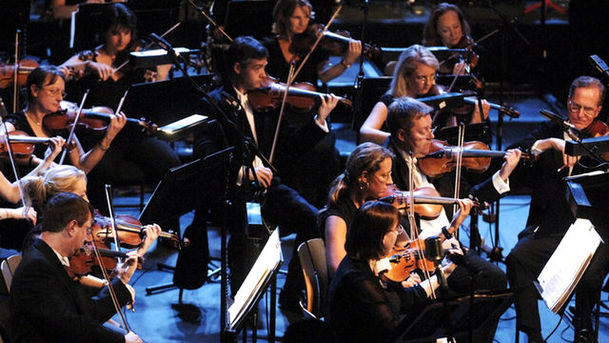Discovering Music - Foxtrots

Charles Hazlewood and the BBC Concert Orchestra explore how the foxtrot of the dance halls of the 1920s and 40s had a creative impact on the imagination of 20th-century composers such as Maurice Ravel, John Adams and Peter Maxwell Davies. The iconic sounds of the popular foxtrots, which reached mass audiences through the wind-up gramophone, through the dance halls and through radio, have become a useful vehicle with which some composers have chosen to present extra-musical and sometimes ironic references in their 'serious' music. Charles briefly analyses the substance of the foxtrot and considers how Ravel used the dance in his opera L'enfant et les sortileges to evoke the spirit of his times; of how American composer John Adams uses the distinctive sounds of the dance played on a 78 rpm record, as the basis for short orchestral concert work The Chairman Dances; and of how Peter Maxwell Davies's recollection of the foxtrots of his childhood culminate in observations about political and moral responsibility in his St Thomas Wake for orchestra.